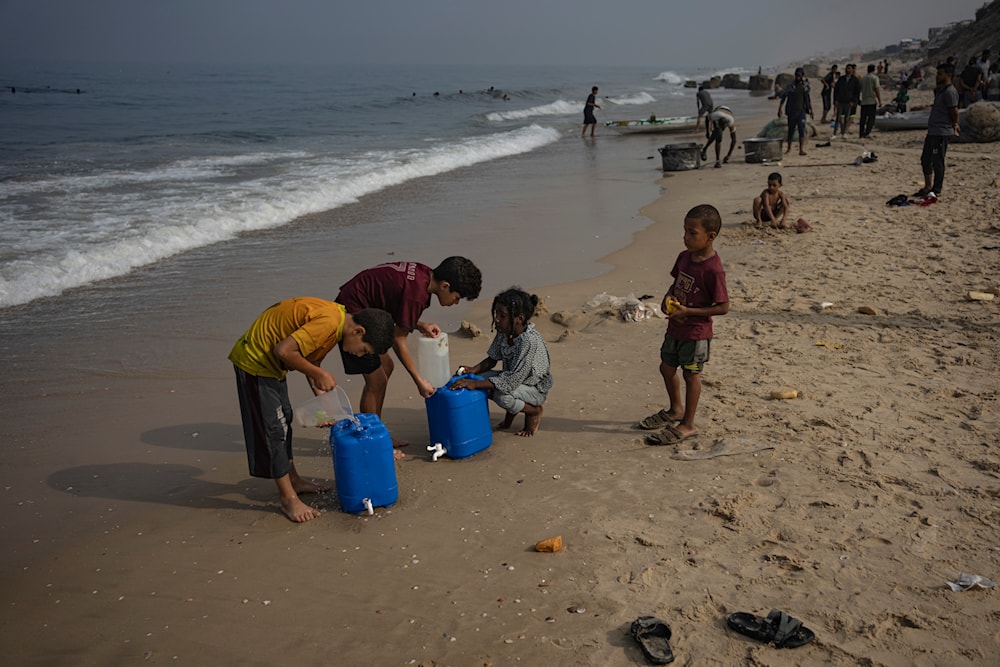WHO warns of fast disease spread in Gaza amid water, food shortage
The UN agency believes that it is "almost impossible" for health institutions to maintain basic infection prevention measures, which consequently raise the risk of infection caused by trauma, surgery, and childbirth.
-

Palestinian children collect seawater at the beach in Deir al Balah, Gaza Strip, Thursday, Nov. 2, 2023. (AP)
In its statement on Wednesday, the World Health Organization (WHO) warned of the fast spread of infectious diseases in the Gaza Strip as a result of the Israeli aggression that has disrupted health, water, and sanitation systems.
It included intense overcrowding as another reason for "the rapid spread of infectious diseases," warning that "worrying trends are already emerging."
It added that the lack of fuel has prompted the shutdown of desalination plants, leading to a significant increase in bacterial infections like diarrhea as people consume contaminated water. Clean water has become a critically scarce resource, severely affecting the lives of the locals.
Before the start of the Israeli aggression, Gaza relied on three primary sources of water: desalination plants (which offered 7% of Gaza's water needs), pipelines from "Israel" (which offered 13% of Gaza's water needs), and numerous wells (which offered 80% of Gaza's water needs).
The collection of solid waste has also become an issue that created an “environment conducive to the rapid and widespread proliferation of insects, rodents that can carry and transmit diseases.”
Read next: Over 10,000 martyred in Gaza as 'Israel' further punishes hospitals
According to the agency, over 33,551 cases of diarrhea have been reported since the aggressions began, the majority of which were among children under five years old - a major increase as opposed to the average 2,000 cases monthly in children under five throughout 2021 and 2022.
Steering towards the impossible
The WHO believes that it is "almost impossible" for health institutions to maintain basic infection prevention measures, which consequently raise the risk of infection caused by trauma, surgery, and childbirth.
"Disrupted routine vaccination activities, as well as lack of medicines for treating communicable diseases, further increase the risk of accelerated disease spread," the statement said, noting that limited internet connectivity and phone system operations restrict abilities to locate and detect potential outbreaks early and respond effectively.
"As people face food shortages, malnutrition, and impending colder weather, they will be even more susceptible to contracting diseases. This is especially concerning for the more than 50,000 pregnant women and approximately 337,000 children under the age of five currently in Gaza," the statement concluded.
The limited humanitarian aid that does enter Gaza from the south, including bottled water, fails to reach the northern part of the Strip due to the siege struck against it by the Israeli occupation and the bombing, which has severely damaged the civilian infrastructure.
Two days ago, the Israeli occupation's Prime Minister, Benjamin Netanyahu, said that there will be no ceasefire, entry of workers from the Gaza Strip, or the passage of fuel into the area unless captives are released.
Read next: ‘Israel’ bombs Gaza’s only hospital for cancer patients

 3 Min Read
3 Min Read








